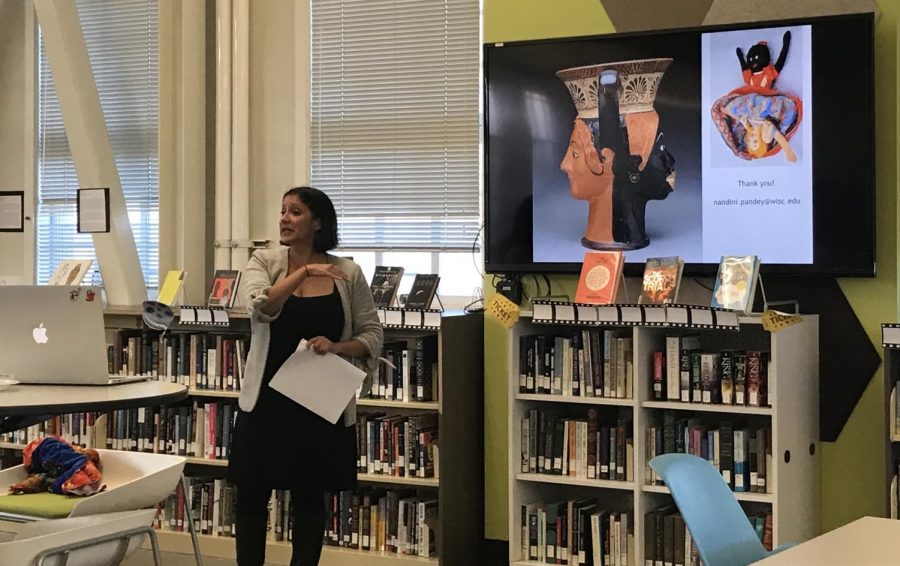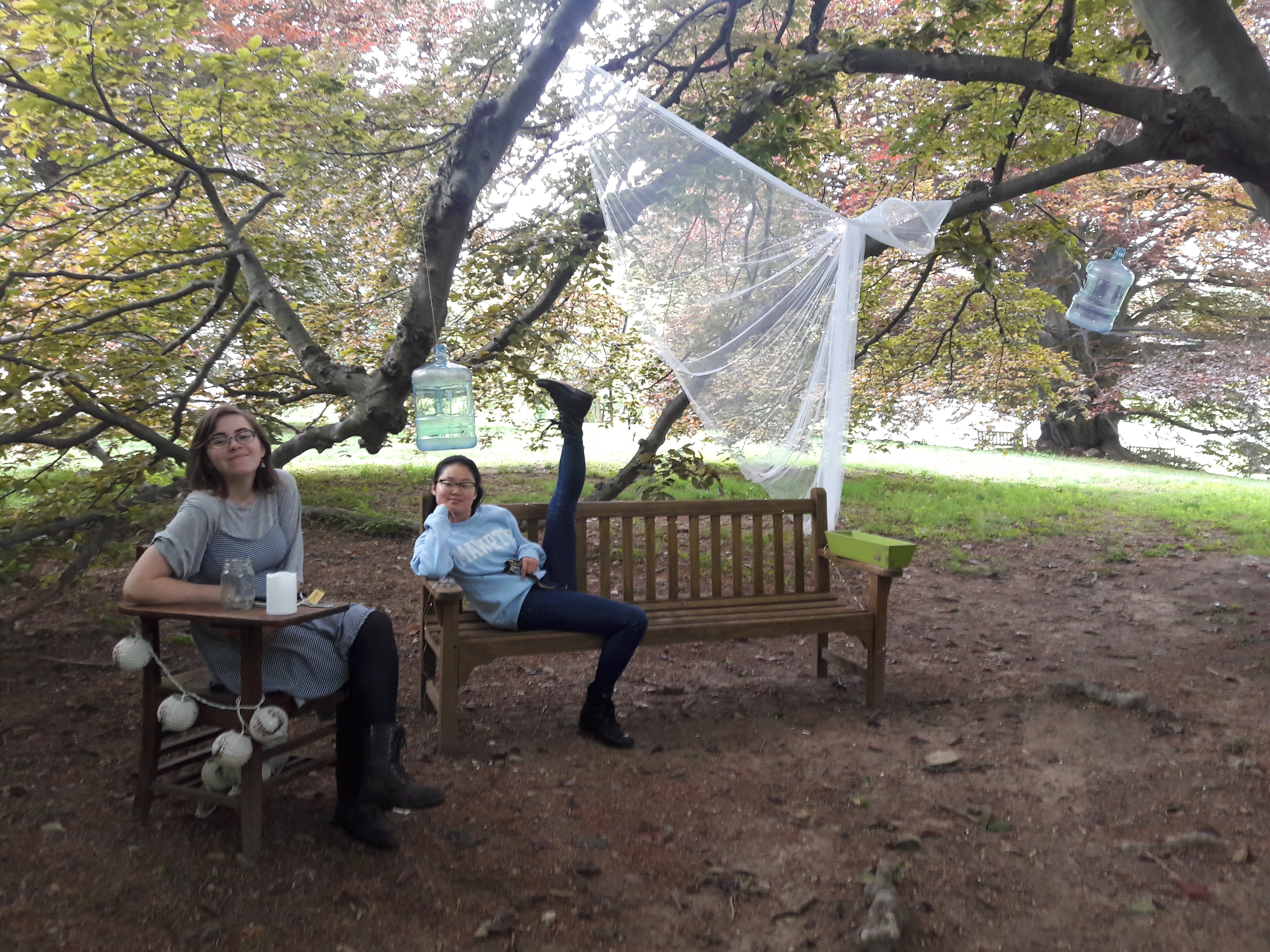By Gwynne Dulaney, Co-Editor-in-Chief
Last month, classics students from Bryn Mawr and Haverford gathered alongside faculty and underclassmen to hear the Classics Senior Majors’ Visiting Speaker, Professor Nandini Pandey of the University of Wisconsin at Madison, present her talk, “Dominance and diversity in Roman space and psychology.” Each year, the seniors of the classics department invite a professor specializing in what they find to be an engaging and relevant topic.
Professor Pandey is an accomplished academic leader in the study of identity and diversity in antiquity, having gained her undergraduate degree in Classical Language at Swarthmore and going on to gain degrees at Oxford, Cambridge, and UC Berkeley. Her talk was an excerpt of her upcoming book, Empires of Difference: What Rome Can Teach Us about Diversity. She is also the author of the book Poetic and Power in Augustan Rome: Latin Poetic Response to Early Imperial Iconography and a contributor to the popular and progressive classically-themed website Eidolon.
Professor Pandey’s talk centered on the definition of diversity in the ancient world and how we can use Roman ideas of diversity and identity to reflect upon our own society today. Professor Pandey discussed how too often Roman culture is whitewashed when it was indeed a diverse and expansive civilization. She also reflected upon the current trend of using history in order to glorify alt-right groups in today’s media, and how Rome in particular is often a victim of this weaponization. In her talk, Professor Pandey opened the audience’s eyes to the relationship between Rome’s open, multicultural society and modern debates about diversity.
Professor Pandey’s topic could not have come at a more relevant time. In the past few years, the academic classical world has been a hotbed of exclusion and racism, making clear that an academic field dominated primarily by straight white men is no longer acceptable. By presenting the classical world as Eurocentric, we not only alienate brilliant leaders in the field who do not identify as such, but also overlook a hugely important aspect of classics that would greatly benefit the field if we took the time to study it more thoroughly. The classical encompasses much more than just Greece and Italy, and classics would be a much more relevant and representative field today if this was addressed. Professor Pandey’s forthcoming book is something that every classicist should read if they wish to make a difference in academia and the world around them.
Image credit: The Broadview




